The subject of carbohydrates can be complex (pun intended), as they’ve sure gained a bad rap over the years. Many fad diets have written off the food group, viewing all carbs as weight-gainers, leading to many believing that a carb-free diet is a top way to lose weight and be healthy.
Think again!
All carbs aren’t bad. By making smart choices with which types you eat, carbs can play an important part in hitting fitness goals and still keep you on a healthy eating plan. However, many are keen to integrate low-carb substitutes into their diets to allow for an increase in protein and good fats in meals. Another good reason to switch in some low-carb alternatives is to help reduce starch and sugar intake if you find yourself reaching for sugary, simple carbs, such as white bread, biscuits and pastries.
But does the thought of reducing kitchen staples, such as pasta, potatoes and rice, make low-carb meals sound boring?
Yup? Think again!
Low-carb substitutes can be brilliantly tasty and inventive! We’re going to dive into some of the top low-carb alternatives you can add to your meals, but first, let's touch upon which carbs are the best to eat and the benefits of adding in low-carb substitutes to your diet...
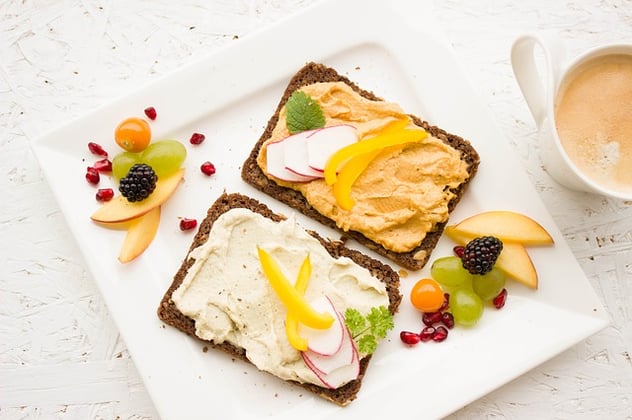
Are carbs bad for you?
We often see carbs as stodgy and sugary. When you think of these types of carbs, you’re actually envisioning refined carbohydrates, also known as simple carbs or processed carbs. These are the ones we should be avoiding to stay firmly on a healthy eating plan.
Refined Carbohydrates - ones to avoid:
- White bread
- White rice
- Cakes
- Cookies
- Chips
- Muffins
- Pastries
- Breaded or battered food
- Chocolate
- Pasta, noodles and couscous
- Pizza dough
The list goes on! Be sure to familiarise yourself with these carbs as they’re not ideal for your healthy eating diet. Refined carbs have been stripped of almost all fibre, vitamins and minerals - ‘empty’ calories. They are also rapidly absorbed into the bloodstream, causing spikes in blood sugar and insulin levels, which can lead to overeating and increased risk of disease.
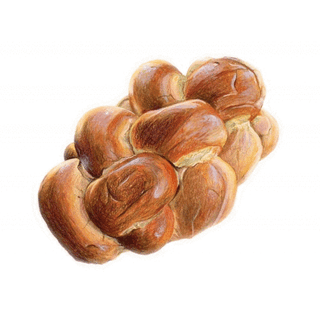
So sure, those carbs are bad for you. If you live a very active lifestyle and are looking to provide yourself with added fast accessible energy that allows you to improve your strength, grow muscle, or recover from intense exercise training, then reach for complex carbs.
Complex Carbs
- Brown rice
- Brown bread
- Buckwheat
- Wholegrains
- Quinoa
- Rolled oats
- Starchy Vegetables
- Lentils
- Bulgur
- Buckwheat
Have a browse of the complex carbs on offer and factor them into your eating plan. They take longer for the body to break down and digest, meaning they provide you with more energy. Including complex carbs in your diet provides your body with a primary source of fuel for the body and brain - perfect to have when you have a high intensity workout ahead!
They are also packed full of fibre which gives your digestive system a workout, maintains bowel health as well as combating ‘bad’ cholesterol. Complex carbs also keeps your body topped with essential vitamins and minerals - it’s a no-brainer that these are good for you!
Not all carbs are bad for you, you just need to be aware of what the right ones are when you’re planning a meal. Choose the complex carbs and utilise them into a balanced diet - they’ll do you no wrong!
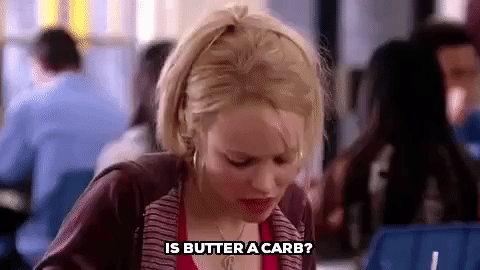
But what’s the deal with low-carb diets?
- You generally need to stick to less than 50g of carbs a day on a low-carb diet - a dramatic decrease from the recommended daily intake of 260g! But you won’t be crying over memories of sandwiches and pizza…
- Low-carb diets tend to be lower in calories, but higher in protein and fat to make up for the carb absence.
- Reducing carbs allows you to control your other macros (your proteins and fats) and increase these nutritious food groups, so you’ll still feel full and satisfied. You will not be left starving.
- By decreasing sugar and starches, your blood sugar stabilizes and fat-storing hormone insulin levels drop. This increases fat burning! Which in turn makes you feel more satiated, reducing food intake and can lead to weight loss.
- This may be more effective in achieving weight-loss and improving cardiovascular health than a low-fat diet, according to studies.
Benefits of a low carb diet:
- It can lead to fast weight loss - vegetables, quality proteins and good fats are fat-burning foods!
- Eliminate the fatty foods - by reducing carbs, you won’t be reaching for those naughty high fat/high carb treats typically containing bad quality fats. It’s harder to overeat fats when there aren’t carbs to combine with them!
- Increase nutrient density - instead of a heap of potatoes, order a mountain of sauteed veggies which increases the density of macronutrients you’re consuming. These can also improve your metabolic rate.
- Better cognitive function - fats are crucial for brain function, so if you increase the good fats in your diet in the carbohydrate’s absence, it can help improve your brain function!
- Lower the risk of type-1 diabetes - helps control blood pressure and insulin secretion.
- Regulates hormones - it can balance hormones naturally and help improve your mood.
- Improves digestion - reduces bacterial growth and nourishes the digestive system.
- Fewer food cravings - lower spikes in insulin from carbs means lowered food cravings.
But it is key to remember that it shouldn’t be a long-term eating plan. Low-carb diets can come with it’s problems:
- Digestive issues due to the lack of fibre
- Depleted glucose (energy for the brain) which may lead to dizziness, headaches and poor concentration.
- Insomnia
- Nausea
Everyone is different and our can react in many ways to diet changes.
10 tasty as heck low-carb substitutes:
-
Mashed cauliflower or turnips
Instead of reaching for the potatoes, turn your masher to cauliflower or turnips. Mash them up and you’ll hardly notice the difference. See who else can tell you’ve served them a low-carb substitute for potatoes!
-
Oats, cottage cheese and banana pancakes
You don’t have to bid a sad farewell to your sweet treats - oats and cottage cheese can work in harmony to create low-carb pancake batter! Throw in some banpixana for sweetness and blend to make smooth batter for your heated skillet. Add whatever toppings you like - why not some shaved coconut and cacao nibs?
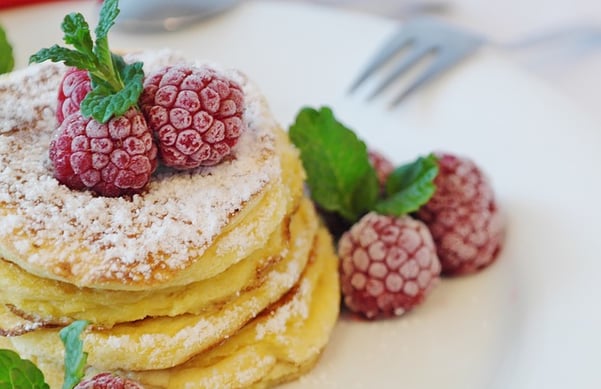
-
Moussaka
Substitute lasagna sheets with sliced aubergine or courgette. You’ll still have the tasty minced protein and tomato sauce, drenched in creamy cheese sauce… you’ll certainly be full after a portion.
-
Courgetti
Spiralized vegetables are a health food trend that isn’t going anywhere! Pick up a Spiralizer and get to work making ribbons of nutritious veggies to replace noodles and spaghetti. Courgette is a popular one (courgetti - get it?!), but you can also make some other fab low-carb substitutes for pasta: sweet potato, carrot, butternut squash.
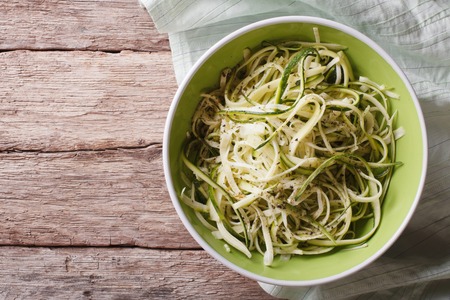
-
Lettuce wraps
Substitute flour wraps with lettuce wraps for a low-carb meal. Get hold of robust lettuce or cabbage leaves, laden them with protein, chilli and asian dressing for a nutritious, carb-free dish!
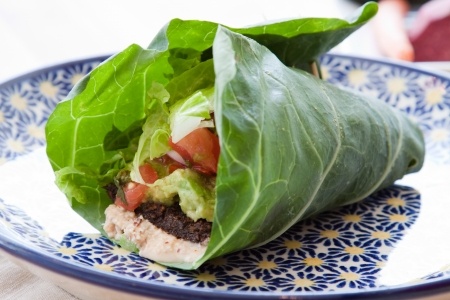
-
Cauliflower or broccoli rice
Replace rice with blitzed cauliflower or broccoli. Chop off the stalks and cut the veg into chunks. Whizz into fine pieces in a food processor, or use a grater. Spread the ‘rice’ on a baking tray and cook in the oven!
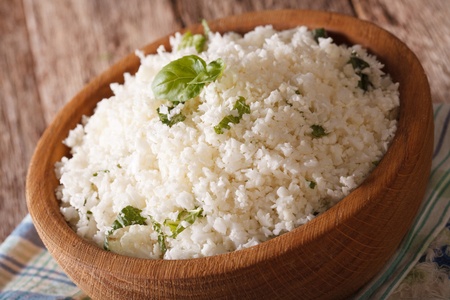
-
Turnip or sweet potatoes fries
Wave goodbye to potato chips, and welcome low-carb alternatives such as turnip or sweet potato. Chop into wedges, toss in oil then shallow roast in the oven for 30-40 mins, until crispy!
-
Sweet potato toast
This is a controversial low-carb substitute for bread, but if you do it right, it’s delish. Slice the potato into ¼-inch slices and pierce with a fork to help the steam escape… then toast it in your toaster. Not convinced? Check out these top ways to make a delicious sweet potato toast.
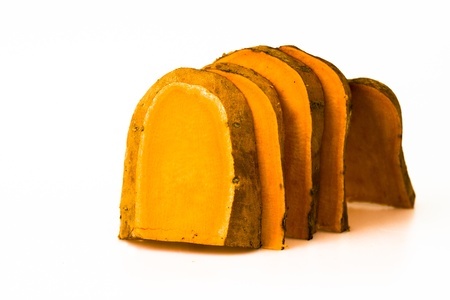
-
Ground almonds or coconut flour
Hey now, just because you’re going low-carb doesn’t mean you can’t have some tasty treats! If you love to bake, you can switch out flour for ground almonds or even coconut flour. The cakes can taste moist and succulent, and will keep you on track to your diet.
-
Portobello mushroom buns
A personal favourite of ours, get rid of the bread buns of your burger and replace with grilled portobello mushrooms. Succulent and packed full of goodness, these will be the perfect pairing to your pattie!
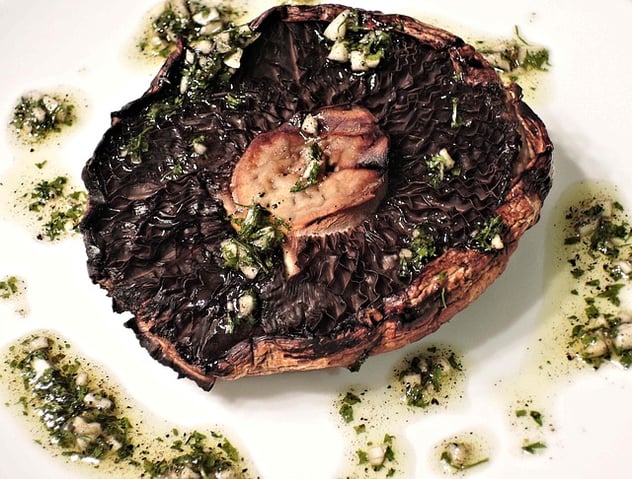
When you think of low-carb, don’t write it off as a lifestyle that would be tasteless and full of hunger - there are so many tasty low-carb substitutes that you can use instead! Remember, when decreasing your carbs, up your portions of quality protein and good fats… and when you need some carbs in your life, reach for the complex ones!
Would you give a low-carb lifestyle a go?

